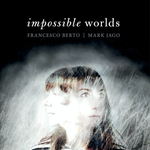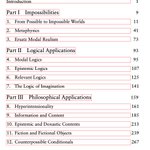There's a lot of scattered articles and some books on the philosophy of mathematics, CT + logic and philosophy, etc. I'm designating this channel for people to post about it here. I'll be more active after work :)
nice! looking forward to it.
Did anyone read „Principles of autonomy“ by Francisco Varela? A major theme in the book are complementarities, e.g. object/process, holism/reductionism and autonomy/control. He modeled complementarities with adjunctions and discussed the syntax/semantics adjunction by Lavwere.
I haven't but I've read his collaboration with Maturana on Autopoiesis
I'd like to read it. CT would be positioned to verify if these concepts are truly dual
I haven’t heard of it, but your summary reminds me of Lambek’s paper on Heraclitus: https://www.researchgate.net/file.PostFileLoader.html?id=53ac5970d685ccdf2b8b465f&assetKey=AS%3A273549233721345%401442230627468
Louis Kauffman wrote a paper on the work of Varela. This was the entry point for me to look at „principles of autonomy“. https://constructivist.info/articles/13/1/011.kauffman.pdf
also new to me. @janet singer had also mentioned Zalamea's Synthetic Philosophy of Contemporary Mathematics as a read. I think the book is one of the first Math-->Philosophy texts in the "Continental" tradition.
@Nicholas Scheel yes, Varela also discusses Hegels dialectics.
I printed both articles out to read tonight
I read the Louis Kauffman (+ others) paper linked above—looks like it suggests some interesting (re)entry points! In particular, I'm considering reading Laws of Form and/or Principles of Autonomy. Any advice/thoughts/suggestions about either of them, or which to read first?
People tend to love LoF or find it tedious (Kauffman is a fan). This has a little more context https://en.m.wikipedia.org/wiki/Laws_of_Form
I haven’t read PoA but definitely respect Varela, and that would be my preference
The Principles of Autonomy has two very interesting chapters which are relevant to category theory. In chapter 10 complementarities are modeled with adjunctions, something I would love to discuss. Chapter 13 is about reflexive domains which he calls "Eigenbehavior". These are the chapter referenced in the Kauffman-paper.
Laws of Form is a very peculiar book. It's a vision by George Spencer Brown on the foundation of mathematics. The writing style is highly idiomatic and a bit difficult to get into. (I made an online tool about the book which should make it a little more easy: https://drever.github.io/form-bakery/). Opinions on Laws of Form differer and professional mathematicians tend to dismiss it (except Kauffman). It was highly appraised by the cybernetics community, e.g. by John Lily and Heinz von Foerster. It was taken up by all kinds of sciences which call them selves "systemic". E.g. Luhmann used it in social science, although he just used concepts as a metaphor (re-entry) and not the caclulus.
In "The Mathematics of Francisco Varela" Kauffman claims that category theory is a good fit for structuralism (objects are defined by the morphism pointing to them) but also claims "In following the epistemology and the fundamental notions of cybernetics, one should, in my opinion, start not with categories, but with Laws of Form." I would like to understand what he means.
I don't really know what you are talking about, but I find it fascinating. I hope this stream will be very active, I am sure to tune in. I read Maturana and Varela when I was an undergraduate, later started to love category theory during my PhD, but never made a connection.
In chapter 10 of "Principles of Biological Autonomy" Varela uses adjunctions to explain "complementarities", i.e. pairs like autonomy/control, being/becoming, space/time, syntax/semantics and symbolic/operational. It's a nice reflection on adjunctions from a philosophical perspective. I have a dropbox with the scanned documents, PM me if you're interested.
I recently found this PhD thesis "Meaning and Duality From Categorical Logic to Quantum Physics" by Yoshihiro Maruyama, from 2016. There is some discussion of philosophy & adjointness there. http://www.cs.ox.ac.uk/people/bob.coecke/Yoshi.pdf
@John Baez My research has something surprising in the struggles with the continuum. I started out only believing in the continuous , but now I see things with Yin/Yang as the model for discrete and continuous. I argue that maps are associated with a unique flow. While set partitions are associated with composition, total partitions or OEIS A000311 are associated with iterated functions and the integer series 1, 1, 4, 26, 236, 2752, 39208, . So the third derivative of an iterated function has 4 components and the forth derivative 26 components.
My question is, what if you have a discrete model and a continuous model that say the same thing?
I'd venture that the most important contribution of Category Theory to philosophy (as well a to mathematics) is the deep insights it gives into dualisation.
Has there been any work relating Category Theory and Psychology? I am thinking of work that would set out to explain how people working in one category can have trouble understanding work people are doing in another category.
For example take the Category Set of sets and functions and its dual CABA of complete atomic boolean algebras. These are dual, but it is quite a lot of work as I am finding, thinking from one to the other.
Could that explain how functional programmers working with Set as their model, could have had trouble understanding logic programmers (if one thinks of them as taking CABA as their model?)
Or the difference between coalgebraic Object Oriented programming, and algebraic oriented Functional Programming?
The thesis by Yoshihiro Maruyama Meaning and Duality shows many such oppositions in philosophy that are related to dualities in category theory. These often created opposing schools of thought as he shows.
There is a paper by Lambek on Heraclitus’ influence on mathematics. It explains the idea of “unity of opposites” with several examples.
There has been some work on category theory and psychology. E.g. a category theoretic explanation of systematicity of human cognition by Philips and Wilson, or MENS by Andrée Ehresmann. Piaget was also interested in category theory at the end of his career.
Francisco Varela used adjunctions to talk about “complementarities” like autonomy / control, process / object or melody / harmony in “Principles of biological autonomy”.
Regarding your question on the opposite category I can only speculate. If the symmetry would be perfectly clear it should be easy to understand the dual category after understanding one category. But maybe the first category is only understood in a skewed way, so the dual category is not apparent?
(thanks for the pointers, I'll look them up)
Johannes Drever said:
Regarding your question on the opposite category I can only speculate. If the symmetry would be perfectly clear it should be easy to understand the dual category after understanding one category. But maybe the first category is only understood in a skewed way, so the dual category is not apparent?
Regarding duals, the proofs in one category map to dual proofs in the other, so knowing that they are dual is a huge help. But it is not easy. I think it took a very long time for co-algebras to be understood (it looks like a lot of the work there started in the 1990ies), even though it was know that there was a dual. The opposite category is not just a simple mirror image, it's something strongly related but very different. So as CT theory gains ground it could help people translate their knowledge from on system to the other, and so at some point in the future the psychological gaps may no longer be so deep. Perhaps children will be taught in schools to always look for the dual and be taught that they cannot understand one side of the coin without unnderstanding the other. (eg. Heyting algebras as logics of constructive proofs, and co-heyting algebras as logics of refutations - then there are things like bi-Heyting algebras, but I am not that far :-) )
@Bartosz Milewski has started reading Wittgenstein's Tractatus, launching a few interesting threads on Twitter recently. For example this one where he contrasts the thinking from the first part of the 20th century to the way of thinking to Quantum Mechanics.
The possible worlds interpretation of Quantum Mechanics (QM) has always made me think that this gap between the original Frege/Russel logic and QM could be related to the rejection by Betrand Russell of Modal Logic which overturned philosophy with Kripke and Hintikka's work in the 1960ies. @David Corfield pointed to a very interesting recent book (review) that argues that this goes back to Frege. Perhaps the key sentence of the review is that for Frege and Russel "thoughts are simply true, and so cannot be true at a time or world, or some other manner."
If I remember correctly from reading Counterfactuals by David Lewis and other works over 30 years ago, D. Lewis always proposed a translation of modal logic into first order logic, thereby making the truths non dependent on possible worlds. (See also the thread on Counterfactuals).
The difference between the modal logic version and the first order logic sentence is that in the modal logic version there is a hidden indexical. So if □Man(socrates) is a modal statemennt that socrates is necessarily a man (a position Kripke defended brilliantly in Naming and Necessity), then this could be translated in first order logic as ∀w.Man(w,socrates) which requires one to add a new position to all predicates that allow them to range over worlds. When that is done the statement is no longer indexical. What was indexical about the first statement? Well the accessibility relation of one world to another may depend on the word in which the statement is made. (This is clearer with epistemic modalities, and even more so with counterfactuals, as which worlds are closer to others depends on where the actual world is thought to be)
Reading Modal Logics are coalgebraic I had come to think that this indexicality is found again in coalgebras, since the result of a computation there depends on the state. For an endo-functor F and state S the coalgebra S→F(S) describes a process. F allows one to make observations on the state of the system, and change the system too. (Very much like getters and setters in OO programming). This dependence on the state S is very similar to the indexicality in modalities.
In his new book Modal Homotopy Type Theory @David Corfield looks at modal logics from the dependent types point of view. I am not yet sure how that ties in with the coalgebraic view.
Btw, speaking of counterfactuals I just found the "Impossible Worlds" book published last year. It is released under a Creative Commons License. Looks like it covers the field very well. And of course it brings up the problem of mathematical counterfactuals. Will impossible worlds do the trick? And how would these appear say in @David Corfield's Modal Homotopy Type Theory?
Hyperintensionality is a key word here.
Note that Kohei Kishida's article "Categories and Modalities" in "Categories for the Working Philosopher" has a section on impossible worlds (though I think it is to point out that they create problems).
 Matt Cuffaro (he/him) (Mar 23 2020 at 18:13):
Matt Cuffaro (he/him) (Mar 23 2020 at 18:13):



